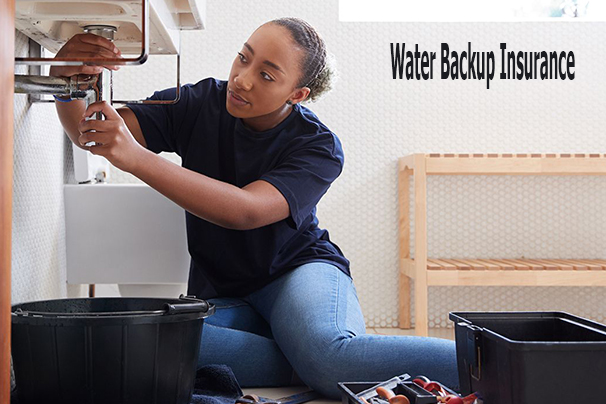Water backup insurance is a crucial component of a homeowner’s insurance policy that provides protection against damage caused by water backing up into your home. This type of coverage is typically designed to protect homeowners from the financial burden of repairing or replacing property that has been damaged due to water backup incidents. Many homeowners are unaware of the risks associated with water backup and the importance of having adequate insurance coverage to mitigate these risks.

Water backup occurs when water from outside sources, such as sewer backups, overflowing drains, or a sump pump failure, enters your home and causes damage to your property. This can result in costly repairs and restoration efforts, including replacing damaged flooring, walls, furniture, and personal belongings. Without proper coverage, homeowners may find themselves facing significant financial strain in the event of a water backup incident.
What does Water Backup Insurance cover?
It’s important to know that not all things caused by water damage can be covered by water backup insurance. What water backup insurance typically covers includes:
- Water backup insurance pays for the repairs to the damages caused by the sewer, septic tank, and drain backup.
- Water backup insurance pays for the destroyed property caused by water backup.
- If your home is under repair, it’s likely that water backup insurance might sort out your living expenses by paying for your stay elsewhere until the repairs are completed.
- It also covers the cost of restaurant meals and boarding pets.
Water backup coverage varies depending on your policy. So it’s advised to check with your insurance company for what is and isn’t covered in your water backup policy.
What does It not Cover?
It’s important to note that this insurance usually has exclusions, so carefully read your policy to understand what is covered and what is not. Here are the things not covered by:
- Water due to natural disasters like floods, thunderstorms, and hurricanes is not covered by water backup insurance. So, it’s advised that you get a separate insurance policy for floods and hurricanes.
- Acts caused intentionally that are then brought in flood will not be covered.
- Replacement and the cost or repair of the overflow might not be covered.
- Whether it’s covered or not will be determined by the cause. If the overflow is an issue outside of normal tear and wear or due to owner negligence, it won’t be covered.
These are the instances of flooding and water damage that the policy will not cover. It’s important you check with your insurer to know what the exclusions are in your water backup policy.
Is Water Backup Insurance Worth it?
Yes. If you live in an area with high risk that is prone to this damage, then you might want to consider opting for water backup insurance. This type of insurance will help you save up money when there’s a costly emergency, and it has minimal annual expenses compared to the huge repair and replacement bills you might have to face if there were to be a water backup incident. The standard homeowners policy does not cover water backup damage, which makes it important to add it to your coverage.
How much water backup insurance do I need?
The amount of coverage one needs is actually dependent on factors like the value of your home, the cost of repairs or replacements when there is a backup situation, and the frequency of the damage occurring in your area. It’s recommended that you check with your insurance company to know the appropriate amount of coverage you need.
How much Water Backup Coverage can I get?
The amount comes in different coverage increments, and it’s also dependent on one’s policy. Below are some coverage amounts for water insurance you can purchase:
- Five thousand dollars
- Ten thousand dollars
- Twenty thousand dollars
- Twenty-five thousand dollars
- Fifty thousand dollars
- Hundred thousand dollars
There may be differences between your deductible and your standard homeowner’s deductible. Before purchasing, it’s important to check with your insurer.
How do I prevent water backups?
The best way to protect your home and also save money is to prevent water backups from happening. With proper maintenance of your home and its systems, you can reduce the risk of water backups and safeguard your belongings and property. Here are some ways that you can prevent water backups and add them to your cleaning routine:
- Ensure you clean out your gutters and downspouts regularly.
- Conduct an annual checkup on your sump pump.
- Store appliances and other electrical equipment safely in your basement.
- Install a water leak detector for leaking pipes.
- Invest in a water shutoff system that can remotely turn off your water in case of overflow when you are away.
- Protect your valuables during an overflow by using waterproof storage containers.
- Incorporate smart home devices throughout your home for water prevention and protection.
- Install an alert sensor to monitor any changes in your home’s climate.
Remember, taking these preventive measures can help safeguard your home from water damage effectively.



